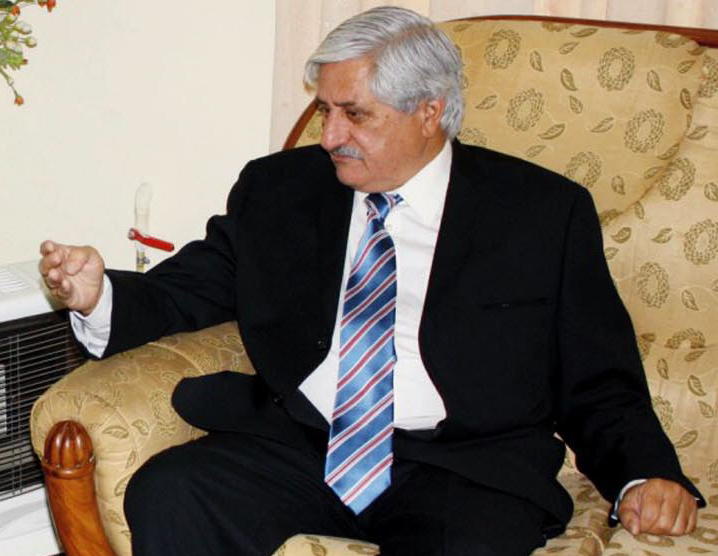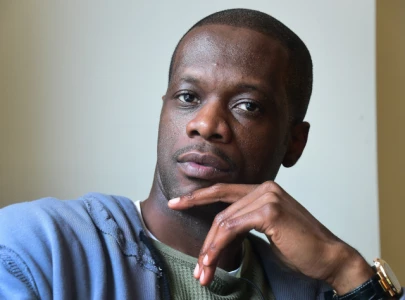
That the area has been a sticking point for any and all peace efforts between the two countries needs no repetition. One of the main problems in the resolution of the six-decade-old standoff has been the preponderance of absolutist official stands in both countries — and possible solutions involve which of the two would get complete control of the disputed region. In fact, even in the United Nations Security Council’s Resolution 47, the recommended plebiscite to be held in the region was only to have two options: join India or join Pakistan. Realistically, neither of the two options is any longer viable: India can hardly be expected to hand over its occupied territory to Pakistan or vice versa. That effectively leaves us with one option on the table — independence or autonomy — which has never been publicly considered and is, in fact, illegal to even suggest in Pakistan. We are told that some form of autonomy was discussed when General (retd) Musharraf was in power, but for all practical purposes that headway exists only in rumour.
The public admission that the ‘third way’ was even an option is, therefore, welcome because it could represent a long-awaited opening in an impasse that has been a roadblock for peace in the region — even if it means it is not necessarily reflective of a policy change yet. That it was by the president of AJK, someone who wouldn’t, and indeed couldn’t, make such a statement without approval from the highest officials in Islamabad and Rawalpindi, makes it all the more exciting.
Published in The Express Tribune, February 21st, 2014.
Like Opinion & Editorial on Facebook, follow @ETOpEd on Twitter to receive all updates on all our daily pieces.
COMMENTS (7)
Comments are moderated and generally will be posted if they are on-topic and not abusive.
For more information, please see our Comments FAQ












@Abdul: "Has anybody taken the opinion of Kashmiri Brahmins ?" Or, of Jammu Dogras? Or, of Ladakhi Buddhists? Or, of Kargil and Valley Shias? Or, of Gujjars and Bakkerwaals? Or, of all those Kashmiri Muslims who are invested in Kashmir as a part of India for all these 65 years like National Conference who have the most to lose? Or, of Muslims in Ghulam Kashmir whose sovereignty will be diluted? So, who remains that may want to be part of Pakistan or seek independence from both India and Pakistan? The few hundred thousand separatists of the Valley. India is certainly not going to risk its national security from the outside and allow a new, fundamentally weak entity in the neighourhood which will be quite vulnerable to external pulls and pushes. India cannot risk its internal national security by exposing its own Muslim population to victimization by the non-Muslims of India, should the bond between Kashmir and India be broken. One may say that it would be patently wrong of non-Muslims to victimize their Muslim compatriots but morality takes a back seat under those circumstances. As it is, relations between Muslims and non-Muslims of India have not been and are not that cozy, because of Pakistan.
@Komal S: T
International borders haven't improved Pakistan's relations with anyone - so why should Kashmir be any different?
There is absolutely no way India will cede territory. The best you can hope for is for India to agree to make the LOC as the permanent IB.
I think Kashmir as an independent nation is as much a non-starter as plebiscite. The best compromise both nations can come to is to change LOC to international border. When that happens Kashmir situation would no different from the Pakthuns(who live across border between Pakistan & Afganistan), Balochis(between Pakistan & Iran).
Has anybody taken the opinion of Kashmiri Brahmins ?
My two sisters were elder married to Kashmiris and they migrated to Pakistan in 1947 crossing Jammu border. Since my childhood, therefore, I felt Kashmiris must get their freedom. After so many years of waiting, my hopes have turned to pessimism and knowing well how India plays it cards so cleverly, see no hope of any settlement which will satisfy the wishes of Kashmiris. The solution is only possible if a sizable minority of Indians feel that way. But they do not. I have met many liberal Indians and have not met a single person who thinks of Kashmiri wishes; it is always Pakistanis who cross the border to create 'trouble' in Kashmir. With terrorism in the name of Islam on the rise it uses this angst to convince the world that kashmiris are better off with India for the sake of world peace. I know that is wrong assumption, but the world seems to agree with India. Yes, I am not optimistic of Kashmir solution, at least in near future.
It is a fact that Neither India nor Pakistan will give up what they control in Kashmir. The status quo is unacceptable as these two countries need to improve relations and try to make the lives of their citizens better. The third option should be considered. I hope Indian and Pakistani leaders will consider this and end over half a century of animosity towards each other. Friendly relations between these two countries will be beneficial for both.